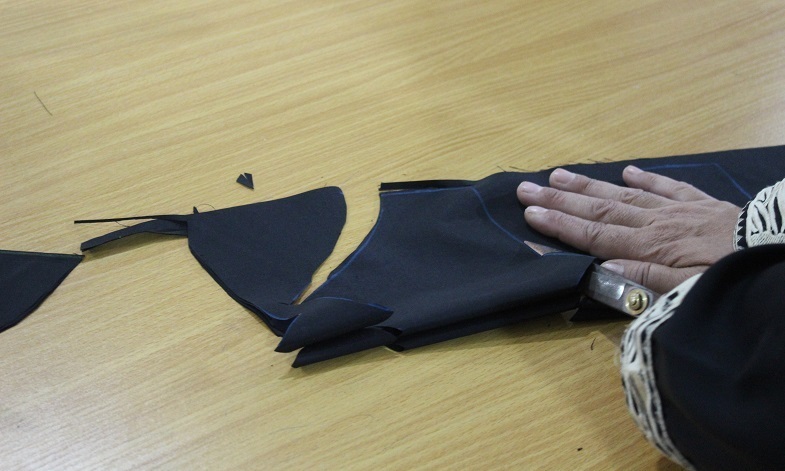
$50bn SDG-targeted investment proposals at SDG Investment Fair
Over 100 SDG-aligned projects with a total investment scope of $ 50 billion have been presented during the ...

Syrian refugees in Jordan’s Zaatari camp teamed up with UK scientists and the United Nations High Commissioner for Refugees (UNHCR) to develop new hand hygiene products and design and produce reusable masks, shields and gowns to help prevent the spread of Covid-19 in Jordan.
This collaboration fructified into developing personal protective equipment (PPE) through using locally available, low-cost materials that can be repurposed after the pandemic, creating training and employment opportunities at a new mask production facility, while keeping people safe and reducing plastic waste.
The project, The People’s PPE, led by academics at the University of Sheffield and London College of Fashion, University of the Arts London (UAL), with researchers from Al Albayt University and the University of Petra, has received £766,675 of government funding provided through UK Research and Innovation’s flagship Strength in Places Fund.
In March 2020, the UNHCR Jordan collaborated with Professor Tony Ryan (University of Sheffield) and Professor Helen Storey (London College of Fashion, UAL) to develop innovative solutions for PPE for the people of Zaatari, utilizing digital printing and sewing capabilities at their UK universities as well as facilities in the camp. Amid the PPE shortages that marked the beginning of lockdown in the UK, the team used the University of Sheffield’s makerspace iForge to design and manufacture laser-cut and 3D-printed face shields. In both the UK and Jordan, the team collaborated with refugees to make prototypes of masks, shields and gowns.
The People’s PPE project will use collaborative and interdisciplinary ways of working to help inform how Zaatari in Jordan can respond to the evolving crisis. In collaboration with research partners Al Albayt University and the University of Petra, the team will investigate how the availability of PPE affects people’s attitudes and behaviours around risk, in order to address health threats. Digital technologies will expand the reach of the work, which will also address broader questions around the effects of PPE uptake on people’s sense of agency, ability and willingness to play a role in preventing and treating Covid-19.
There are currently 660,000 Syrian refugees living in Jordan, where the government has done extraordinarily well in suppressing transmission of the virus, recording 11 deaths from 1,100 cases.
However, as lockdown measures are eased, the UNHCR is preparing for a dramatic increase in Covid-19 transmission, and there is a pressing need for supplies of PPE compliant with Jordanian standards. With limited buying power, neither the Jordanian government nor UNHCR, who manage the camp, are well-placed to compete globally for supplies.
The People’s PPE will provide opportunities for people in Zaatari to become more financially independent and self-reliant especially in light of decreasing global aid budgets. It will also develop new products for hand hygiene in collaboration with Givaudan – the world’s largest purveyor of flavor and fragrance.
The government funding will allow the project to be scaled up, creating small-scale manufacturing jobs in Zaatari and using digital technology to share design innovations, create equitable distribution networks and gather data on health behaviours without face-to-face contact
Professor Tony Ryan, Director of the Grantham Center for Sustainable Futures at the University of Sheffield and Principle Investigator on the project, said: “This project is about empowering refugees in a moment of health crisis. I’ve spent years working with the people of Zaatari and learning from their incredible resourcefulness and creativity.”
“Faced with a global pandemic, we are working together to design and produce the protective equipment the refugees and their host community need to stay safe, while reducing plastic waste, creating jobs and building resilience within the camp community.”
Over 100 SDG-aligned projects with a total investment scope of $ 50 billion have been presented during the ...
Global electric car sales are set to hit around 17 million by the end of ...
Ericsson Canada marked the Earth Day by joining the Environment and Climate Change Canada’s (ECCC) Net-Zero ...


اترك تعليقا